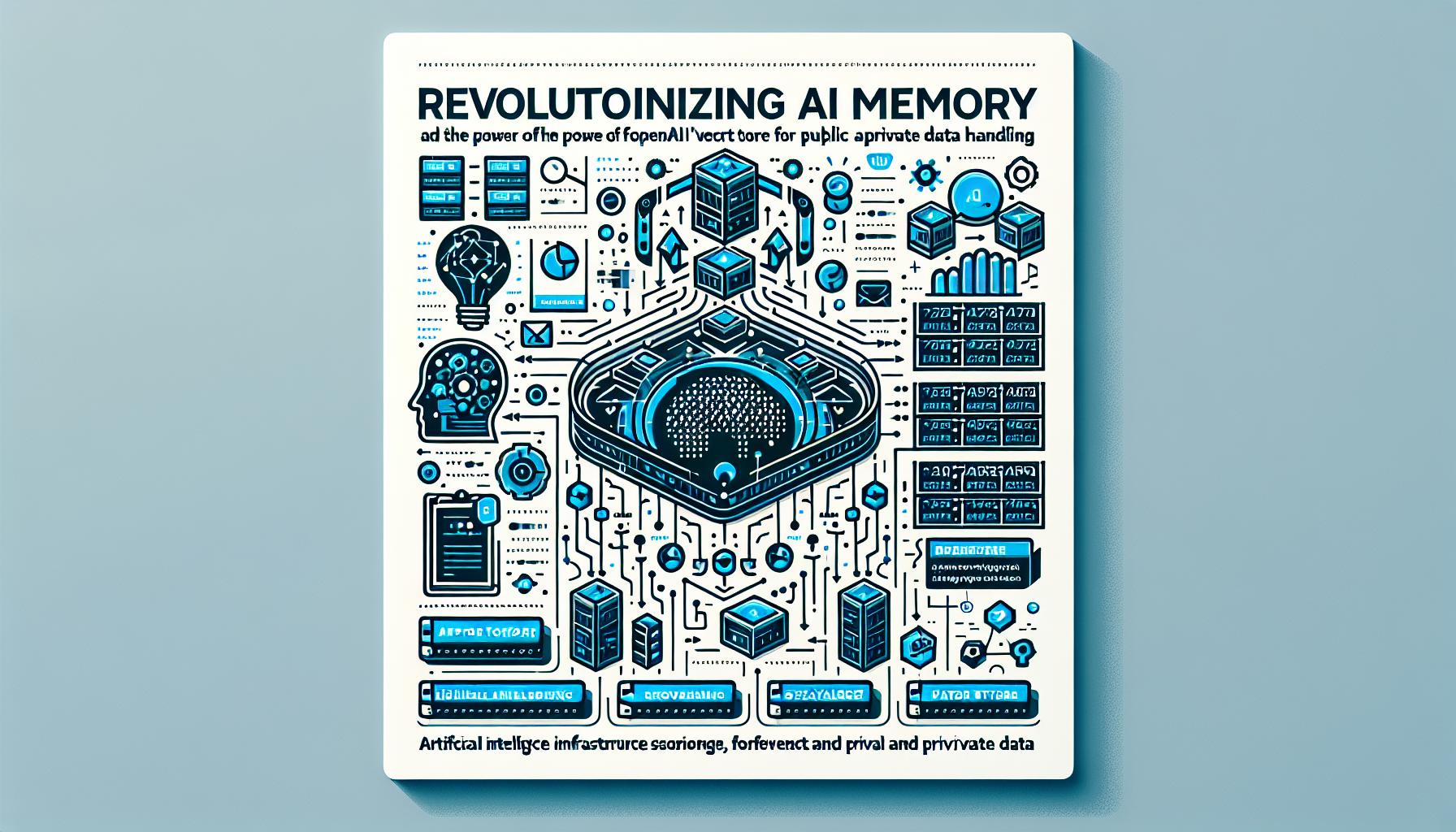Revolutionizing AI Memory: The Power of OpenAI's Vector Store for Public and Private Data Handling

Introduction
In today's rapidly evolving tech landscape, sophisticated memory handling has become crucial for A.I. systems. OpenAI's introduction of vector store technology has revolutionized how A.I. agents handle, store, and utilize memory for both internal and external users, bridging a significant gap in A.I. functionality and enhancing user experience across various applications.
The Essential Role of Memory in AI
Memory is not just vital for human cognition but is similarly crucial for the efficiency and effectiveness of A.I. systems. A.I. agents equipped with efficient memory handling capabilities can deliver personalized experiences, improve decision-making processes, and enhance overall efficiency. By recalling past interactions, A.I. systems adapt and respond more intelligently, making them increasingly valuable in roles ranging from personal assistants to complex analytical tools.
The Challenge of Scalability and Efficiency
The integration of memory in Large Language Models (LLMs) like those developed by OpenAI presents numerous challenges. One of the most significant is the issue of scalability and management of these memories without the need for constant retraining or updates, which could be resource-intensive and inefficient.
Vector Store: A Game Changer for A.I. Memory
OpenAI's vector store technology offers a novel approach to managing A.I. memory. This technology enables A.I. agents to handle vast amounts of data without the limitations previously imposed by smaller context windows. Vector store facilitates the conversion of large data sets into manageable files, which can be stored and accessed as needed, thus providing a permanent and scalable memory solution.
Personalizing Memory: Public vs. Private Utility
One of the most innovative aspects of vector store is its ability to differentiate between public and private memory needs. A.I. agents can now store and recall data through a configuration that supports both shared (public) memory for collective access and private memory tailored to individual user interactions. This functionality is crucial for applications where personalized data handling and privacy are priorities.
Privacy and Access Control Challenges
Despite the advanced capabilities of the vector store, issues of privacy and access control persist. As A.I. systems become more integrated into daily operations, ensuring secure and regulated access to sensitive information is increasingly important. Future enhancements by OpenAI are expected to address these concerns, further solidifying the foundation for secure, efficient, and scalable A.I. memory solutions.
Future Directions and Conclusion
The advent of OpenAI's vector store is just the beginning. As this technology matures, it promises to further alleviate the scalability bottleneck while improving the precision and personalization of A.I. memories. This advancement is not just a technical improvement—it reshapes what's possible in the realm of Artificial Intelligence, making A.I. agents more adept, versatile, and sensitive to the human needs they are designed to serve.

